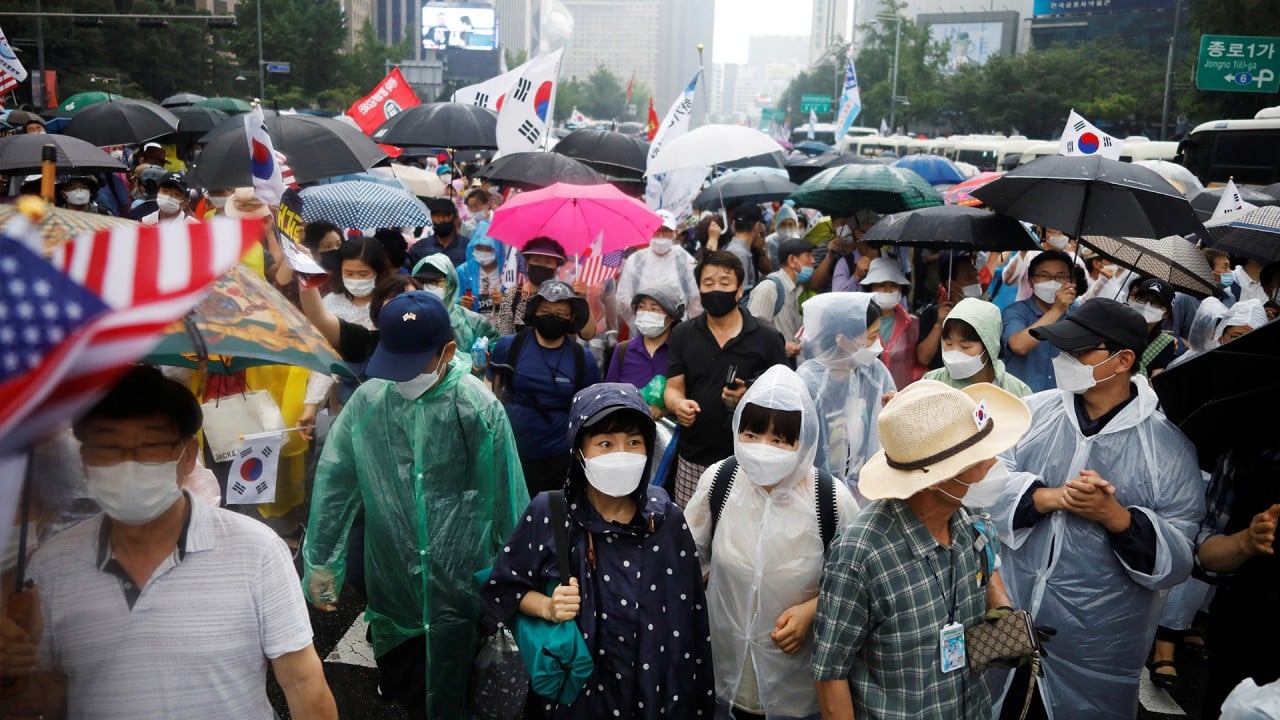
Explainer | Are fears over catching coronavirus from imported frozen food justified? And what can be done to minimise risks
- Concerns first raised after two cities in mainland China detected virus on the surface of frozen food and packaging on shipments from South America
- But public health experts said the virus detected on frozen food samples was already dead, which meant it would not be able to infect people
But local health experts quickly downplayed such concerns, saying the risk of catching the virus this way was low if food was thoroughly cooked.
What sparked fears in Hong Kong?
In Xian, capital of northwestern Shaanxi province, a sample of frozen shrimp packaging from Ecuador tested positive for the coronavirus, local health authorities said last Thursday. At the same time, authorities in Shenzhen also said they had found the virus on the surface of frozen chicken wings from Brazil, the country with the second highest number of Covid-19 infections in the world after the United States.

01:27
South Korea sees biggest coronavirus outbreak in five months with cases linked to church protest
China later said the chicken wings had come from Brazil’s third largest pork and poultry processor, Central Cooperativa Aurora Alimentos. On Monday, the company agreed to test 11,000 workers for Covid-19. Hong Kong’s Centre for Food Safety said that batch of chicken wings was not sold in the city.
On Tuesday, Hong Kong’s Centre for Food Safety said that 40 samples of frozen chicken meat from Brazil it tested were all negative for Covid-19.
Meanwhile, Danish Crown, Europe’s largest pork exporter, suspended exports from a facility in Copenhagen after nearly 150 employees tested positive for the coronavirus last week. It said all products currently sold in Hong Kong had been made during or before June.
Nursing home resident dies as Hong Kong records 36 new Covid-19 cases
What measures have Hong Kong authorities taken?
The Centre for Food Safety has suspended the import licence for Brazil’s Aurora, a decision the Brazilian Association of Animal Protein (ABPA) said it was seeking clarification for.
ABPA also said it might seek help from the World Trade Organisation to resolve the issue as the ban had no scientific evidence, as there has been no evidence of food-borne transmission of the virus, it said, citing the World Health Organisation and United Nations.

Hong Kong’s food safety authorities have also said they would enhance checks on frozen chicken from Brazil as a precautionary measure. They also said they would follow up with the Danish authorities for more information on the pork processing plant.
University of Hong Kong microbiologist Dr Ho Pak-leung urged the Centre for Food Safety to release information online on how many samples of imported foods and related sources had been tested to put the public at ease.
What have mainland China and other countries done?
It has found nine cases of coronavirus from imported foods since early July as it stepped up testing of goods arriving at Chinese ports. On Sunday, Guangzhou authorities announced a ban on frozen meat, fish and seafood from countries hit hard by the coronavirus, but had not named any specific ones.
Last Friday, the mainland authorities also imposed stricter measures for shrimp from Ecuador, stating that local companies would have to obtain certification from the importing country the seafood had been processed under strict sanitary controls.
The Philippines also announced a temporary ban on imports of poultry from Brazil, but did not say how long it would be in force.
New Zealand, which had been infection-free for more than 100 days, investigated whether its newest cases could be linked to frozen food imports or freight but on Tuesday ruled out the possibility.
Hong Kong bans Air India from flying to city for two weeks over Covid-19 fears
I s food-borne transmission possible?
The World Health Organisation said last week there was no evidence the coronavirus could be spread through food. Hong Kong’s food safety authorities had also said there was no proof of people contracting Covid-19 in that manner.

Various public health experts, including Dr David Hui Shu-cheong from Chinese University, said the virus detected on frozen food samples was already dead, which meant it would not be able to infect people. It would only be a cause for concern if live coronavirus strains were found on the samples, he said.
What can consumers do to avoid infection?
The Centre for Food Safety recommends Hongkongers wash their hands thoroughly before and after handling food, as well as to keep raw meat separate from cooked food.
Hui suggested residents wash the packaging of frozen products with soap before storing them, and said there would not be problems if the food was thoroughly cooked before consumption.

